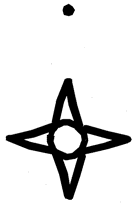Anthropology, Department of

Nebraska Anthropologist
Date of this Version
2007
Document Type
Article
Abstract
This paper provides a critical examination of the dynamic connection between archaeological research and programs of political and religious agendas in Israel and Palestine. This examination contributes to recent discipline-wide discussions concerning the powerful impact of archaeological research in areas of political and religious turmoil. The first section of this paper notes the absence of an Islamic counterpart to Biblical archaeology. While there is no archaeology that attempts to prove literal interpretations of the Qur'an, the rather complex archaeology advanced by Albert Glock (1984; 1994; 1995) serves to meet the needs of marginalized Palestinian villagers. Yet Glock's experience with the intellectual pitfalls of Biblical archaeology prevents him from constructing an archaeology that reproduces its tradition of exclusion and unexamined bias. Lastly, contrasting Glock's violent and untimely death with Ian Hodder's (1998) calculated statesmanship at Çatalhöyük reveals the potency of archaeological research and the associated risks.


Comments
Published in Nebraska Anthropologist Vol. 22 (2007). Copyright © Katherine Lamie; published by The University of Nebraska-Lincoln AnthroGroup.